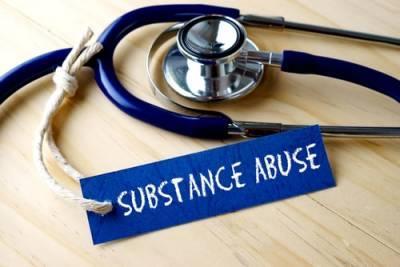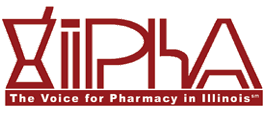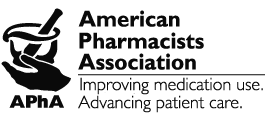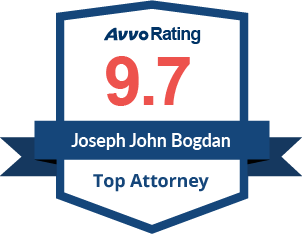Recent Blog Posts
Continuing Education Requirements for Illinois Social Workers
 In the state of Illinois, there are hundreds, if not thousands, of people who have careers as licensed professionals. These professions can range from the obvious, such as doctors and nurses, to the not-so-obvious, like architects and engineers. The one thing that all of these careers have in common is the need to become licensed in the state they practice. The state of Illinois has also put into place certain requirements for license renewal for many professions, one such requirement is continuing education. This requirement exists for the sake of maintaining a knowledgeable and up-to-date workforce. One such profession that requires continuing education is social work.
In the state of Illinois, there are hundreds, if not thousands, of people who have careers as licensed professionals. These professions can range from the obvious, such as doctors and nurses, to the not-so-obvious, like architects and engineers. The one thing that all of these careers have in common is the need to become licensed in the state they practice. The state of Illinois has also put into place certain requirements for license renewal for many professions, one such requirement is continuing education. This requirement exists for the sake of maintaining a knowledgeable and up-to-date workforce. One such profession that requires continuing education is social work.
Understanding Social Work Licensure
In Illinois, there are two types of licenses you can receive in the social work profession: a licensed social worker (LSW) and a licensed clinical social worker (LCSW). These two types of licenses are very similar, though they have separate qualifications and requirements, mostly depending on your experience as a social worker. No matter the type of license, social work licenses expire on November 30 of every odd-numbered year. Despite these differences, the continuing education requirements are the same for these licenses.
Protecting Your Medical License When You Prescribe Controlled Pain Medications
 The United States has been experiencing what has been referred to as an opioid epidemic for years now. Part of the cause of the epidemic was due to pharmaceutical companies insisting these medications were safe and non-addictive. This led physicians to prescribe narcotics at an increasing rate for patients with chronic pain. After it was discovered that these medications were actually highly addictive, they became controlled substances and subject to many regulations. State licensing and regulatory agencies began cracking down on physicians’ prescribing of these medications, punishing many who were abusive or neglectful in their power to prescribe. In 2019, 36 physicians in Illinois received some sort of disciplinary action due to improper controlled substance prescribing practices.
The United States has been experiencing what has been referred to as an opioid epidemic for years now. Part of the cause of the epidemic was due to pharmaceutical companies insisting these medications were safe and non-addictive. This led physicians to prescribe narcotics at an increasing rate for patients with chronic pain. After it was discovered that these medications were actually highly addictive, they became controlled substances and subject to many regulations. State licensing and regulatory agencies began cracking down on physicians’ prescribing of these medications, punishing many who were abusive or neglectful in their power to prescribe. In 2019, 36 physicians in Illinois received some sort of disciplinary action due to improper controlled substance prescribing practices.
Opioid Use Guidelines for Physicians
In 2017, the Federation of State Medical Boards (FSMB) adopted a policy that outlines responsible prescribing practices for physicians with the privilege to prescribe controlled substances. This policy gives state medical boards criteria to use to evaluate a physician’s management of a chronic pain patient. This criteria includes evaluating the physician’s:
Understanding the Most Common Forms of Disciplinary Action Taken Against Physicians
 One of the biggest and most concerning things that could happen to a physician is losing their privilege to practice medicine. While this type of disciplinary action is not as common as other types, it does happen in some cases and can be devastating to the physician. According to the latest information from the Federation of State Medical Boards (FSMB), there were more than 8,800 state medical board actions taken across the country in 2017. These actions range from something as simple as imposing a fine to permanently revoking a physician’s medical license. Here are the most common forms of disciplinary action taken against physicians in the United States:
One of the biggest and most concerning things that could happen to a physician is losing their privilege to practice medicine. While this type of disciplinary action is not as common as other types, it does happen in some cases and can be devastating to the physician. According to the latest information from the Federation of State Medical Boards (FSMB), there were more than 8,800 state medical board actions taken across the country in 2017. These actions range from something as simple as imposing a fine to permanently revoking a physician’s medical license. Here are the most common forms of disciplinary action taken against physicians in the United States:
- License restricted (1,343): The most common form of discipline from medical boards across the country was to restrict a professional’s medical license. Having your medical license restricted typically means you are limited in what you can do as a physician. Typically, restrictions have something to do with clinical privileges, such as restricting the ability to write prescriptions.
How Substance Abuse Can Affect Your Professional License
 After a long and stressful day, sometimes it is nice to come home and have a glass of wine or a beer. It is not uncommon for someone to come home from work and have a drink or two to unwind, but for some people, this can become a harmful habit -- especially if you work in the medical field. Individuals who work in the medical field face an immense amount of stress and tension on a daily basis. Multiple studies have suggested that medical workers face a higher chance of developing a substance abuse issue. According to the Mayo Clinic Proceedings, somewhere between 10 and 12 percent of all physicians will develop a substance abuse issue during their careers. Substance abuse is serious for anyone, but for a physician or other medical professional, it could jeopardize their career.
After a long and stressful day, sometimes it is nice to come home and have a glass of wine or a beer. It is not uncommon for someone to come home from work and have a drink or two to unwind, but for some people, this can become a harmful habit -- especially if you work in the medical field. Individuals who work in the medical field face an immense amount of stress and tension on a daily basis. Multiple studies have suggested that medical workers face a higher chance of developing a substance abuse issue. According to the Mayo Clinic Proceedings, somewhere between 10 and 12 percent of all physicians will develop a substance abuse issue during their careers. Substance abuse is serious for anyone, but for a physician or other medical professional, it could jeopardize their career.
Signs of a Substance Abuse Issue
Sometimes, it can be difficult to spot the signs of substance abuse in a medical professional. Most of the time, medical professionals are very high functioning substance abusers, meaning they are still able to go about their daily lives and maintain their careers and households for a period of time. Here are a few common signs that a medical professional is battling substance abuse:
What Are the Requirements for Becoming a Licensed Psychologist in Illinois?
 In the state of Illinois, many different professions are regulated by the Illinois Department of Financial and Professional Regulation (IDFPR), from architects and detectives to accountants and engineers. Nearly all medical professionals, including psychologists, are also licensed by the IDFPR and must meet certain requirements to legally practice in the state. These requirements are put in place in order to maintain a certain level of safety for the public. Illinois issues two types of licensure for psychologists: clinical psychologist and prescribing psychologist. Each type of license has its own requirements, which are important to understand if you plan to apply for a license.
In the state of Illinois, many different professions are regulated by the Illinois Department of Financial and Professional Regulation (IDFPR), from architects and detectives to accountants and engineers. Nearly all medical professionals, including psychologists, are also licensed by the IDFPR and must meet certain requirements to legally practice in the state. These requirements are put in place in order to maintain a certain level of safety for the public. Illinois issues two types of licensure for psychologists: clinical psychologist and prescribing psychologist. Each type of license has its own requirements, which are important to understand if you plan to apply for a license.
Clinical Psychologist
A clinical psychologist can be found in a variety of settings. Many clinical psychologists have their own practices and see various types of patients about various issues. Clinical psychologists have the ability to diagnose and treat patients with a variety of issues and work with primary care physicians and psychiatrists to control patients’ conditions with medication. To become a licensed clinical psychologist in Illinois, you must:
Facing Disciplinary Action When You Are a Nurse in Illinois
 Though not as much as a physician, it often takes years of schooling and studying to become a nurse. All of that hard work finally culminates when you apply to receive an Illinois nursing license that enables you to practice in the state of Illinois. If you are a nurse, you are held to certain standards, which if broken, can result in disciplinary action. The Illinois Department of Financial and Professional Regulation (IDFPR) is the licensing body that oversees all nursing, physician, pharmacist, psychologist and chiropractic licenses, among many others. The IDFPR is also the disciplining body that will take action against your license if you are accused of wrongdoing.
Though not as much as a physician, it often takes years of schooling and studying to become a nurse. All of that hard work finally culminates when you apply to receive an Illinois nursing license that enables you to practice in the state of Illinois. If you are a nurse, you are held to certain standards, which if broken, can result in disciplinary action. The Illinois Department of Financial and Professional Regulation (IDFPR) is the licensing body that oversees all nursing, physician, pharmacist, psychologist and chiropractic licenses, among many others. The IDFPR is also the disciplining body that will take action against your license if you are accused of wrongdoing.
Cause for Disciplinary Action
There are a number of reasons why a nurse could face disciplinary action against his or her license. These reasons include behavior such as “unethical or unprofessional conduct,” or being convicted of a crime. Here are a few common reasons why you may find yourself facing disciplinary action against your license:
Protecting Yourself When You Are Under Investigation by the DEA
 The United State’s Drug Enforcement Administration (DEA) is a federal entity whose main task is to make sure that drugs are being used, sold, manufactured and prescribed correctly and within the confines of the law. One of the ways the DEA accomplishes this is by performing audits and investigations on physicians and their practices. For doctors and their employees, this can be a cause for concern because even a small slip up can become a serious issue. If you have become the subject of a DEA investigation, you should act quickly and immediately hire a medical license defense lawyer.
The United State’s Drug Enforcement Administration (DEA) is a federal entity whose main task is to make sure that drugs are being used, sold, manufactured and prescribed correctly and within the confines of the law. One of the ways the DEA accomplishes this is by performing audits and investigations on physicians and their practices. For doctors and their employees, this can be a cause for concern because even a small slip up can become a serious issue. If you have become the subject of a DEA investigation, you should act quickly and immediately hire a medical license defense lawyer.
Understanding DEA Investigations
The DEA routinely conducts audits at the practices of physicians who are permitted to prescribe controlled substances. Typically, you can expect an audit every three years to determine if you are being compliant with all applicable laws. The DEA may also perform an audit if they have reason to believe something illegal may be taking place. This typically begins the investigation process and involves the DEA auditing your patient files. It is possible that the DEA or FBI may also request an interview with you to attempt to gather more information. If they have probable cause to believe that you have not been complying with the Controlled Substance Act, you may also receive a search warrant for your office or practice.
Common Reasons You Can Face Disciplinary Action As an Illinois Social Worker
 There are laws governing all sorts of professions, from doctors and nurses to cosmetologists and architects. When it comes to professions such as social work, there are certain things that are explicitly spelled out as being inappropriate and not tolerated in the Illinois Clinical Social Work and Social Work Practice Act. The Act contains information about what is expected from Illinois social workers and what is considered to be unprofessional conduct. If you are accused of unprofessional conduct as a social worker, you could face disciplinary action such as a license suspension or revocation, probation or reprimand.
There are laws governing all sorts of professions, from doctors and nurses to cosmetologists and architects. When it comes to professions such as social work, there are certain things that are explicitly spelled out as being inappropriate and not tolerated in the Illinois Clinical Social Work and Social Work Practice Act. The Act contains information about what is expected from Illinois social workers and what is considered to be unprofessional conduct. If you are accused of unprofessional conduct as a social worker, you could face disciplinary action such as a license suspension or revocation, probation or reprimand.
Examples of Unprofessional Conduct
If you are a person who works in a profession that is regulated by the Illinois Department of Financial and Professional Regulation (IDFPR), such as social work, there are certain standards of behavior that you must abide by or face the consequences. Here are a few ways you can be subject to disciplinary action as a social worker:
Tips to Help Health Care Professionals Avoid Inappropriate Social Media Use
 Social media is a large part of many people’s daily lives. According to data from Edison Research, a vast majority (around 223 million) of Americans ages 12 and up are using social media. Even professionals such as doctors, nurses, dentists, and psychologists use social media, though things can get a little tricky because of privacy laws. Health care professionals have specific ethics and standards that they must adhere to and the use of social media presents an ethics challenge for some physicians.
Social media is a large part of many people’s daily lives. According to data from Edison Research, a vast majority (around 223 million) of Americans ages 12 and up are using social media. Even professionals such as doctors, nurses, dentists, and psychologists use social media, though things can get a little tricky because of privacy laws. Health care professionals have specific ethics and standards that they must adhere to and the use of social media presents an ethics challenge for some physicians.
All health care professionals are required to adhere to the Health Insurance Portability and Accountability Act (HIPAA), which exists to protect the privacy of patients and their health care information. Inappropriate social media usage could result in disciplinary action from the licensing board, which could affect your career. Here are a few ways you can help protect yourself on social media:
Ways You Can Prepare for Your Medical Board Investigation
 Even the most responsible physicians can become the subject of a medical board investigation. Each state medical board is required to investigate any complaints that they receive, even if the complaint has no merit to it. When you are under investigation for a complaint that was made about you, it can be a nerve-wracking experience. Your professional reputation and medical license could be at stake, depending on the nature of the complaint and outcome of the investigation. If you are dealing with a medical board investigation, proper preparation is key to a successful outcome. Here are a few ways you can prepare for a medical board investigation:
Even the most responsible physicians can become the subject of a medical board investigation. Each state medical board is required to investigate any complaints that they receive, even if the complaint has no merit to it. When you are under investigation for a complaint that was made about you, it can be a nerve-wracking experience. Your professional reputation and medical license could be at stake, depending on the nature of the complaint and outcome of the investigation. If you are dealing with a medical board investigation, proper preparation is key to a successful outcome. Here are a few ways you can prepare for a medical board investigation:
Understand the Investigation Process
Even though the medical board has to review each and every complaint that is made to them, they do have an evaluation process that they use for complaints. If they find that a complaint is unsubstantial, they will not pursue any action against you. If they do think a complaint is worth looking into, however, they will likely send you a letter requesting a medical record review. If this happens, it usually means the medical board has flagged the complaint as a serious one.
















